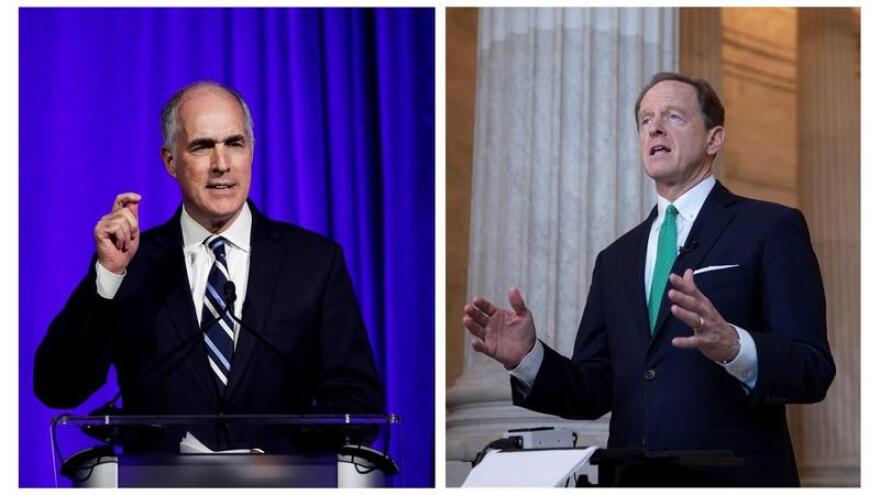Pennsylvania’s two Senators say they support a new COVID-19 relief package that a bipartisan group of lawmakers unveiled Monday. The plan would prioritize areas of agreement while leaving more contentious issues to be resolved later.
“We still are in the worst part of the pandemic, and it’s likely to get even worse in the next couple of weeks. So Congress has to act,” Democratic Sen. Bob Casey said on a call with reporters Tuesday.
Republican Sen. Pat Toomey said in a statement of his own that, while legislators remain deadlocked on some issues, “this should not stop the Senate from passing a bill where Republicans and Democrats largely agree.”
The new framework, advanced by a bipartisan group of lawmakers, consists of two parts. The first would provide $748 billion for popular ideas such as providing money for unemployment compensation, aid for small businesses, and money for food assistance, education, vaccine distribution, and coronavirus testing.
While Casey predicted that Congress will approve those provisions this week, he acknowledged that the parties remain far apart when it comes to giving financial aid to state and local governments and creating liability protections for businesses and other establishments. The compromise proposed Monday would wait to address those topics in a separate bill.
“This is very much an interim agreement,” Casey said of the initial package. “This should not be the last word on COVID-19.”
In the absence of more relief, Westmoreland County resident Victoria Murrell said she struggles to afford food for her and her 12-year-old daughter. A recent college graduate, Murrell said she's lost her restaurant job due to state-mandated shutdowns.
On Tuesday's call with Casey, Murrell said she’s “used to living paycheck to paycheck, and when that doesn’t happen, you have to ask yourself, ‘How am I going to put food on my table now for my child?’”
Without more help, Murrell said she continues to stretch the food benefits she received from the first coronavirus relief bill, which Congress passed in March. “I’ve just been very frugal … because it is a very difficult time that we’re in,” she said.
Dr. Ala Stanford, a Philadelphia surgeon who also spoke during Casey’s call Tuesday, highlighted the need for more resources to administer COVID-19 tests. Stanford founded the Black Doctors of COVID-19 Consortium to organize test sites in marginalized communities, which are among those hit hardest by the coronavirus.
“But this is me, a private citizen,” Stanford said. “This is not the government that has done this.”
Although her group is organized and has developed trust with the neighborhoods it serves, Stanford said, “We need sustainable financial support.”
The doctor urged lawmakers who have blocked extra coronavirus relief “to make [it] part of [their] legacy to get this country back on track.”




